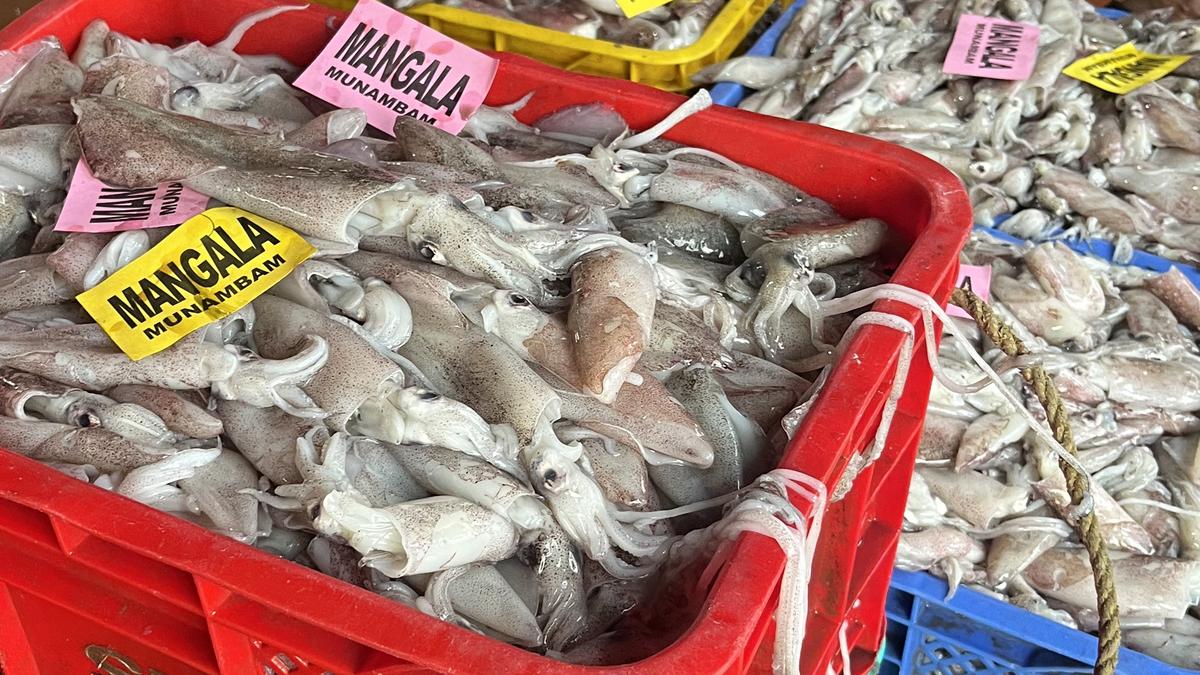Indian Squid

- 29 Jan 2025
In News:
Researchers at the Central Marine Fisheries Research Institute (CMFRI), Kochi, have successfully decoded the gene expression pattern of the Indian squid (Uroteuthis duvaucelii), marking a major scientific advancement with wide-ranging implications for neuroscience, environmental studies, and sustainable marine resource management.
About Indian Squid
- Common Name: Indian Calamari
- Scientific Classification: Cephalopod
- Size: Typically 20–30 cm; can grow up to 50 cm
- Appearance: Light pinkish-grey body with two large fins, eight arms, and two longer tentacles used for capturing prey
- Key Abilities:
- Camouflage
- Jet propulsion for rapid movement
- Advanced nervous system
- Problem-solving skills and behavioral intelligence
Habitat & Distribution
- Preferred Habitat: Coastal and open sea regions of the Indian Ocean
- Found at depths ranging from 100 to 500 meters, some even up to 1,500 meters
- Requires high dissolved oxygen levels for respiration
- Geographic Distribution:
- Widely distributed in the Indo-West Pacific
- Found in Indian Ocean, Red Sea, Arabian Sea, from Mozambique to the South China Sea, Philippine Sea, and northward to Taiwan
- Conservation Status: IUCN Red List: Least Concern
Scientific Significance of Genetic Research
- Key Findings:
- Revealed genetic similarities with higher vertebrates like fish and humans, suggesting deep evolutionary links
- Indicates that Indian squid could serve as a model organism to study brain evolution, intelligence, and neurobiological functions
- Potential to inform research in neural circuits, memory, learning, and even neurological diseases
- Findings may also explain squid's adaptive success, such as evading predators and fishing pressures due to high cognitive ability
Institutional Background: CMFRI
- Established: 1947
- Affiliation: Part of the Indian Council of Agricultural Research (ICAR) since 1967
- Headquarters: Kochi, Kerala
- Mandate: Research on sustainable marine fisheries and ecosystem conservation
CMFRI’s Broader Recommendations for Sustainable Marine Management
- Enactment of Sea Fishing Act to regulate fishing beyond territorial waters
- Institutionalization of ecological stock assessments for sustainable exploitation
- Simplification and promotion of open mariculture with focus on environmental sustainability
- Use of AI-based systems to estimate landings and monitor fishing vessels
- Deep-sea resource exploration and alternative fishing methods
- Institutional mechanism for supervising deep-sea fishing
- Strengthening insurance coverage for marine fishers
